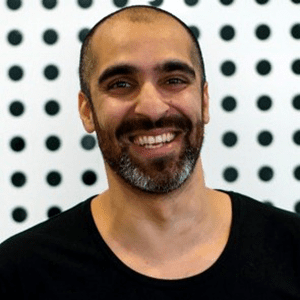

How can you be in business and not know where your cash is?
John Stewart talks about the importance of forecasting your balance sheet. It’s about the management of cash more than the management of profit.
Everyone knows ‘Cash is King’ and ‘You only run out of cash once’. Most people in business understand these as statements, however, John has found that most business leaders’ ability to know where their cash is and their ability to forecast their cash is wanting.
‘You can keep a business alive with poor profit and strong cash flow, however, if you have a business with strong profit and poor cash flow your business is at risk.’
It’s about the management of cash more than the management of profit!
Stephanie: Today our guest is John, a chartered accountant by profession, and for the last 20 years John has worked with companies under stress, for whatever reason. He’ll often invest in the company and take a CEO role to affect a turnaround in the company’s fortune. His last successful venture was with SEMA Holdings, a direct marketing business where he brought the company out of voluntary administration to eventually sell the business to IVE Group, Australia’s largest digital marketing company. And today John’s here to talk to us about cash. So welcome, John.
John: Good morning, Stephanie.
Stephanie: On our wander over here from the office, we found that we have a lot of things in common.
John: We do.
Stephanie: In fact, potentially I sold you a fairly outrageous outfit when we were both university students.
John: I was studying accountancy at the Institute of Technology.
Stephanie: So you were outrageous, that’s a given.
John: Well now, there were blue pinstripe flares, which, when I brought them home my sisters, didn’t think were fantastic, to be honest.
Stephanie: What did that go with? What was the outfit?
John: It was a bright red jumper as well, and I wore it to my now wife’s 21st party.
Stephanie: Absolutely fabulous.
John: So it worked some magic.
Stephanie: Yeah. Well that’s right, that’s great. You know, the shop Uncle Sam’s on George Street that was owned by the wonderful late Phil Salter who-
John: From Salmat.
Stephanie: From Salmat. So, there we are. We’ve covered off that bit. Let’s get to cash. Let’s start with something everyone says in small business, cash is king. It’s all about cash.
John: It is, and everybody understands that as a statement. You only run out of cash once is another good thing that some people learn. But then business people’s ability generally to know where their cash is and to accurately forecast their cash is often wanting. I wouldn’t have much to do if people were better at forecasting their cash.
Stephanie: So tell me about that. How can you be in business and not know where your cash is?
John: There’s a basic lack of understanding and a lack of reporting, perhaps a little bit through the accounting profession as well as the business owners, in that they worry about the profit and loss account. They worry about their sales and their expenses and they don’t worry enough about the balance sheet. And the balance sheet is where your cash sits, and it’s either tied up in your debtors, it’s tied up in your stock, or you’re running well and you’ve got a lot of cash there and you’re able to pay dividends, or do other things.
But that focus on the balance sheet isn’t there. Often, not until it’s too late and certainly not in a lot of the forecasting that gets done. They’ll forecast their profit and loss in their budget. They won’t forecast their balance sheet.
Stephanie: Can you be making good profit and not have cash?
John: So you can keep a business alive that has poor profits and strong cashflow forever. If a business has strong profits and poor cashflow, you are always at risk. And so it’s more about the management of cash than it is about the management of profit.
If you’re making a loss, you will run out of cash eventually, but if you’re bumping along the bottom and have good control of your cash, you can pretty well go forever.
Stephanie: I don’t think many people have that perspective, John, because people are probably far more aware of whether they’re making money on a deal or what the margin is than actually what the payoff or when the payoff will be.
John: When the payoff is really what it’s about. If you’re growing too quickly, you could go broke because of a lack of control over cash.
Stephanie: So that’s growing out of business, kind of.
John: It is. You literally do that. So then the money you need to spend to drive the sales that you’re getting. If it’s not coming in in the 25 and 30 days and you’re starting to fund, really, your customers and clients and it’s growing quickly enough, you will go broke.
Stephanie: That’s really scary isn’t it?
John: It’s commonplace. With a lot of the start-up businesses as well. They don’t quite understand that the growth numbers that they put in, the step up that’s going to make them successful is not properly funded in a working capital sense. They’ll go to the market and they’ll ask for investors for capital, but then they don’t do the same exercise on the capital they need to fund their balance sheet properly.
Stephanie: So let’s take a step back.
John: Yup.
Stephanie: What are the fundamentals for a business to collect the cash and… Well, first of all, yeah, to collect the cash and then to report on the cash that they have. So let’s go back to that.
John: It sort of starts in a slightly different way. So you’ve got to get your forecasting correct. So you have to be able to do a budget. You can’t manage last month. So what you’ve got to be doing all the time is looking at and seeing what’s happening with your profit and loss account, your sales and your expenses. But in operating that profit and loss account, it’s either going to consume cash or produce cash.
So the next thing you’ve got to forecast is your balance sheet. What’s happening with your debtors, are they’re going up or down? If the debtors are going up, then the cash is being constrained there. What’s happening with your stock? If your stock numbers are growing, or you’re not getting your stock turned over quickly enough, it’s consuming your cash.
I often wander into a restaurant and see million dollar fit-outs and can’t relax because I’m such an exciting person-
Stephanie: You can’t relax , unless you’re in your flares and your red jumper, yeah.
John: You can see the cash that they’ve put into that and you know they’re going to need it to fund the business as it grows. So they don’t worry about those sorts of things.
They’re under capitalised. They underestimate how much money they need to actually get the sales that they’re saying they’re going to get. And then once they put those things together, their cash flow is probably inaccurate and they don’t look at it often. They may look at a P&L budget every month, but they may not necessarily update their cashflow every month.
Stephanie: So is just looking at my bank balance enough?
John: No, the really interesting thing about a bank balances is that’s actually the bank’s records, not your records.
Stephanie: Right.
John: That’s a copy of their ledger.
Stephanie: Yeah, that’s a good… that’s nice.
John: And so, other than the actual cash you’ve got, it’s got very little relevance as to what’s going to happen to your cash in the months going forward. It’s about debtors, it’s about stock. It’s about raising capital. It’s about, you know, how much you’re spending on capex.
Capitalism is a scarce resource. Every time you go to the market to get capital, you give something away, a share of the company. Revenue is a renewable resource. Every time you make a sale, someone will pay you. There’s not enough focus really on protecting the capital that you’ve got in a business and generating the cash you need out of the revenue.
Stephanie: Okay. That makes really good sense. Small businesses could easily… will start-ups particularly, but could easily fall into the trap of using the capital to keep the business running rather than having the eye on what’s the top line doing.
John: In their early stages, that’s often what they do and they don’t spend enough to get the renewable cash, which is their revenue, and the capital doesn’t come back easily. But then it goes a step further. If they’re offering terms, 30 days, then they’re not going to get their cash for 30 days. If you’re in Australia and you’re supplying to our major corporates, our top 100 companies, a lot of them have policies that they’re not going to pay you for 45 days.
Stephanie: Yeah.
John: There’s a little bit of political focus on that in the last six months or so, but it’s a crying shame. They’re giving standard terms of 45 days and I’ve had some experience where they’re asking for 60 days, and that ties up all of your cash. A lot of them have moved to Internet-based procurement systems that are being administered from overseas. So in addition to the 60 days, their payment systems don’t work and, you know, it’s 70, 80 and 90 days by the time you’re getting paid. It’s very, very hard to run a business when you’re actually not getting paid in that manner.
Stephanie: Absolutely. So for the benefit of people who didn’t do accounting.
John: Yup.
Stephanie: Some of us were studying speech pathology when you were studying accounting, and have moved on from there. But tell us the fundamentals of a balance sheet.
John: Well the fundamentals of the balance sheet is the difference between cash and accrual accounting.
Stephanie: Okay.
John: So if you’re just using your bank statement as you suggested before, you’re not doing accrual accounting, so you don’t know when your cash is going to come in and you don’t know when your cash is going to go out.
So the balance sheet is all about the activity in the business. Who have I got to pay in the next few months? Who’s going to pay me in the next few months? And being well on top of that. It’s far more important to have a good idea of your balance sheet than it is of your P&L if you’re going to want to control and grow your cash.
Stephanie: I think that’s a really key point so far from this conversation, John, because I’d say a lot of small businesses and mid-size businesses that really don’t have a handle on their balance sheet.
John: No, because it needs a good accountant and it’s got to be done monthly and it’s got to be closed off every month to keep it accurate, and sometimes under the pressure of just getting the day-to-day done, they stop at the P&L process and then they can never find where their cash has gone. It’s so commonplace in smaller companies that it’s almost worth a crusade.
Stephanie: I was going to say, we have to do something.
John: The banks will only lend you money when you don’t really need it, and so by the time-
Stephanie: Okay, stop there, tell me about that.
John: Well, I suppose that’s a little bit of a cliche, but if you go to the bank with sort of a hole in your trousers and desperate for funds, they’re not really inclined to assist.
Stephanie: Yes.
John: So if you can see, if you can get two or three months ahead of the process and go to the bank and say, in December of this year, we expect there to be a tightening of cash for all of these reasons.
Stephanie: Yes.
John: We need to double our overdraft.
Stephanie: Yes.
John: And then in March of next year we’ll be in a position whereby we start to pay that down. You’ve got a fighting chance with the bank.
Stephanie: Yes.
John: If you ring them up on Friday and say, unless I get some money by Wednesday, I can’t pay my wages, then-
Stephanie: They’re not going to talk to you.
John: They’re not going to talk to you. So the banks really only lend the money when you don’t really need it. They’ll only lend you the money when you can tell them how you’re going to get it back.
Stephanie: Yes.
John: If you can’t accurately forecast your cash, you can’t know those things. You can’t, you simply can’t deal with it.
Stephanie: So forecasting is so important, isn’t it? And that takes me back to my corporate days when reporting back into global head office, it was more about being able to tell the story about what’s happening then the actual result itself.
John: Exactly. You can’t manage last month, so you spend an hour or two looking to see what happened. But really, tell me what’s going to happen next. Tell me what’s happening next month. Tell me where we’re going to be in December, and then I have a chance to make some decisions and influence the way the business might go. So it’s all about forecasting.
But as I said, we’ll forecast our P&L, we won’t forecast our balance sheet. If you want to control your cash, you have to forecast your balance sheet. No ifs, no buts, no maybes, and the cash drops out of that exercise.
Stephanie: Right, okay.
John: The cash forecasting drops out of that exercise.
Stephanie: How do you start an organisation? How do you start with an organisation, you know, when you walk in and you’ve done a couple of big turnarounds, but if you’re mentoring a mid-size business, how would you start to help them with this?
John: The first thing is to keep it simple. Often I’ll see, you know, enormous spreadsheets that, you know, might be 20 and 30 sheets long, and 26 columns wide, and you don’t need that. So you keep it simple. You’re dealing big round numbers rather than detailed numbers.
Stephanie: Yeah, absolutely.
John: And you can actually get this sort of work onto a page. There’s no need for it to be much more than that. You test it, numbers follow strategy. So you tell me what you want to do and, and how you’re going to go about it. And I can create numbers that will support that.
Now the numbers then may not reflect what do you think was going to happen. So we’ve got to go back and start working through the strategy until we get a set of numbers that meets expectations and allows for the resources we’ve got. It’s no good doing a cashflow forecast that says it’s going to be minus $300,000 when you’ve got no bank facilities. So you’ve got to go back and start working and understanding the strategy. The numbers follow the strategy, and then is this what we thought was going to happen?
You can’t get these things wrong because they change all the time. So it’s trial and error. As you work it more, you get more accurate, and you start to understand where are the little pockets where the cash goes to hide that previously I wasn’t looking. A lot of people will only go looking when the cash becomes-
Stephanie: Critical.
John: Critical. But cash gives a business choice. There’s nothing wrong with having too much cash, instead of letting it all get all held up, and then you get choice. You can pay a dividend, you can go into another business, you can consider, you know, all sorts of new business ventures. Cash gives you choice. So the strict management of that balance sheet, the strict management of your capital allows you to do different things with your business. When, you know, even fat and happy businesses let their cash hide in all the little corners of the business without realizing what might be possible.
Stephanie: So three big takeaways for me. Forecasting.
John: Yup.
Stephanie: I love you can’t change the last month, the month gone. So forecasting is really important. Have an eye on the balance sheet. It’s not all about the the P&L.
John: Yup.
Stephanie: That really matters. And that idea of capital, of don’t spend your capital. Make sure you’re clear on what you’re working… well, spend it with the strategy, but make sure you’re clear on where your working capital comes from.
John: Yeah, so capital is a scarce resource.
Stephanie: Yes.
John: Using it for capex, use it wisely, because if you’ve got to go back to the market, be that market, you know, friends, family or other fools, you’re invariably giving some part of the business away. So the capital has to be conserved at all costs. Revenue is renewable, go and chase it until the cows come home, and then you can spend it on the sort of things that you need to spend it on. So conserving the capital, I think, is vitally important.
Stephanie: I love the fundamentals that you’ve just shared with us because that makes sense for someone who’s just starting up, keeping an eye on things, and for a big business that might be stalled or in trouble.
John: So there’s a reason the big businesses are offering, you know, sort of 45 and 60 day terms to deal with them –
Stephanie: Oh, cash.
John: They understand the importance of cash, and they’re keeping their cash for as long as they can, and little businesses that don’t realize that and get themselves into strife very, very quickly. When you’re starting up, if you don’t start with an attitude towards cash that you’ve got to conserve it and build it, you will not succeed.
Stephanie: Who is the most important person in the organisation to have their head around this?
John: Oh, it’s got to be the business owner.
Stephanie: Yeah.
John: It has to be the business owner. The balance sheet is a picture of a business at a point in time. They should be looking at that picture of their business every month and saying, is this what I thought it was going to be? Is this the value I thought I was going to create? Does this make me happy or does this make me worried? The feeling you get in your gut when things are going wrong comes from a poor balance sheet. The sales may not be there and it’s leading to all sorts of pressures, but it’s when the balance sheet really gets into strife that you start to not be able to fix it.
Sales can turn round, you can sell different things. You can cut costs. You can manage a P&L. Once a balance sheet gets wildly out of whack, where you owe more money than you’re going to get in over the next 12 months. I did a company not so long ago that was in a unique business area. It went into two additional… and the sales were dropping. It went into two additional business lines without realising that they had to restock the business completely.
It was about a $2 million change in stock and the stock that they had became pretty much useless and they had no cash to get the new businesses going. And nobody, including the board of that company, had put that together. They just said, we know that we can sell these things at a better price than what we were doing, but the cash required to switch from what they were doing into the stock they needed to move to their new business model prohibited it ever happening.
Stephanie: What I really like about this conversation, John, is that you make it simple. Some simple messages. It’s about knowing your own business and telling the story that makes sense, and I think that’s something that businesses of any size are going to find very, very helpful.
John: Business isn’t rocket science.
Stephanie: No, well I love that. I love the things coming from you today too John. You know, there’s a number of them, and we’ll leave the banks for another conversation.
John: That’s right. But it’s not rocket science. A lot of it is common sense. A lot of it is worrying about the future. What’s going to happen next? And if you can’t answer those questions, then you’re not really in charge of the company. You need some expertise in and around the accounting, so if that’s not your background, then you need to get that in. You don’t need to spend a lot of time on it. Accounting repeats itself every month.
I’ve got a new CEO I’m mentoring at the moment. I’m teaching him how to review his accounts. He’s come out of a complete sales packet, and you know, it’s simple. We sit down once a month and we look and we see this month’s result versus budget. This month versus same month last year, year to date. This month versus last month. Balance sheet and P&L. Is it trending up? Is it trending down? That’s it. We’ve reviewed the accounts. Now, it’s trending up. Everything’s fine. We’ll keep doing it.
It’s trending down. Why is it trending down? Let’s now go and and dig into that. But same thing, this month versus budget, this month versus same month last year, year to date this year versus last year. Year to date this year versus budget. Trending up? Trending down? Okay.
Stephanie: Beautiful.
John: The review is done.
Stephanie: The review’s done. I feel I’ve done very well in my review of cash this morning. John, so helpful. Thank you very, very much.
John: That’s all right.
Stephanie: And I love how you’ve… I love business isn’t rocket science. It’s just actually making the simple even easier, and not being scared of it, and knowing where to look. So thank you so much for your time. Great to talk.
John: Thank you very much.
Stephanie: Okay, so that’s TEC Live for today. CEOs are in the business of making decisions and leadership is the art of execution. I’m Stephanie Christopher and look forward to talking to you next time.



